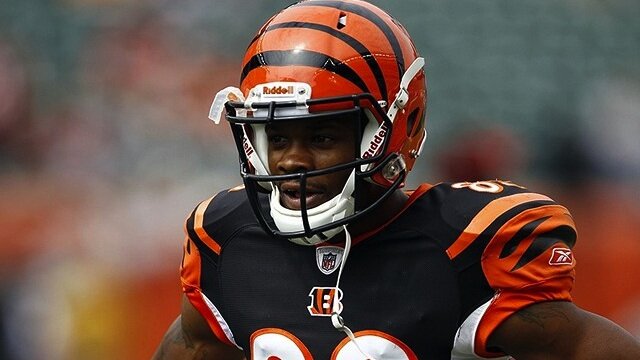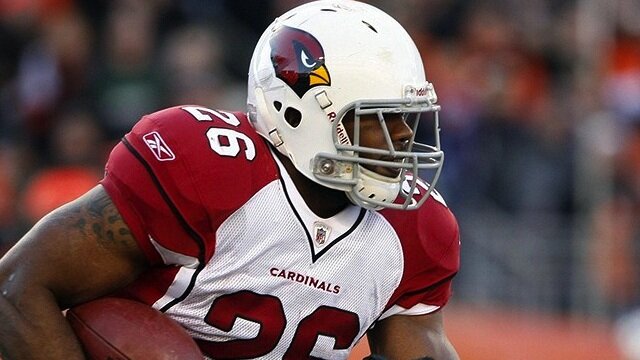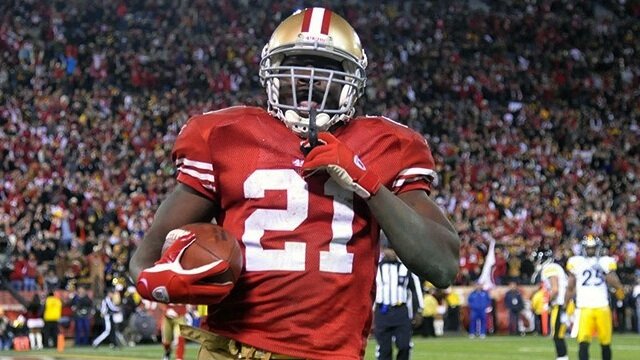2012 London Olympics: The Top 10 Moments

So the fat lady has finished singing. This morning many woke up, flicked on the TV and slapped their foreheads as they realized there was no sport on. Many will now be raring to get into the Paralympics, but the empty Cristal bottles and lack of lanyards on the tube tell us that the 2012 London Olympics are over.
In a desperate attempt to try and cling on to the magic, some will be foolhardy enough to throw about lofty proclamations. Calling this the best ever Olympics would be tantamount to saying that was the best breath of oxygen you took just there. Each Olympic Games is special because each Games means something different to the participants.
What would be much easier is to respect this moment in time and proffer respect and congratulations for the grand, and not so grand, spectacles that have fleetingly filled us with childlike glee and spurred us to forget allegiances and politics to simply shout.
I have picked a top 10 moments of the Games. These are completely subjective and there is no countdown, as that would be insulting to all of those involved. They are simply the moments which exhausted and enthralled me at the same time.
The Opening Ceremony
A three hour display of irreverent wit that was neither mawkish nor condescending, director Danny Boyle pulled off an opening ceremony that both celebrated and poked fun at Great Britain.
There were moments to unite a globe, as Mr. Bean took a starring role after the Queen and James Bond jumped out of a helicopter. The music was a centre piece and there were left-wing messages galore as the NHS was given its due and focus came on the microcosm of family life, after a huge song and dance about the vast far-reaching industrial revolution.
It was funny and littered with literary references, but most importantly it worked better than most of us had expected.
Michael Phelps Makes History
The phrase “most decorated Olympian” rankles with me (almost as much as the mutated verb “medal”). However, Michael Phelps deserves to be decorated- an enormous portrait, hand detailed by an artisan painter, showing Phelps weighed down by medals would complement the mantelpiece of any manor or estate.
He came to the 30th Olympiad hoping to put icing on his cake. Or at least that is what he said. When he claimed his 20th and 2st Gold medals it was assured that he would become synonymous with the Games. He was nudged out in a few races, but this did not matter. You can now gild the statue of liberty with his gold.
Greatest of all time? What a pointless discussion. Let’s just all agree that he is a special athlete and that his dominance was both pulse raising and worthy of our unbridled respect.
Chad Le Clos… and his Father
This may awkwardly juxtapose the highlight above, but there was something dumbfounding and acquiescent about Chad Le Clos defeating Michael Phelps in the pool.
The South African swimmer touched the wall before Phelps by thousandths of a second, but he snatched the men’s 200m butterfly title. Unsurprisingly he was shocked to have edged out his illustrious competition, but the stadium rose into rapture nonetheless.
Then the BBC played a masterstroke. They brought Le Clos’ father, Bert, in to be interviewed during the medal presentation. Instantly Bert became a superstar. Ably handled by the BBC’s standout presenter Clare Balding, Bert displayed all of the joy and vigor that the Olympics brings out of us. “Unbelievable.”
Alan Campbell and Sir Steve Redgrave
Rowing has to be one of the most brutal sports out there. Expending all the energy one has in reserve, a 2,000m pump for the line is taxing to a painful degree. In a single scull it must also be the loneliest place on earth.
British rower Alan Campbell was one of the medal contenders in his final on the lake of Eton Dorney. He gave everything he had and narrowly finished in third.
Wasted from his exertions he had to be dragged from his boat. Five-time Olympic champion Sir Steve Redgrave, covering the events for the BBC, helped lift him back on to land.
As the legend of rowing carried the Northern Irish sculler to the podium the bronze medalist broke down. He was too exhausted to keep his emotions in check and too depleted to walk. As Redgrave lifted the weeping rower onto the platform it was hard not to be sucked in.
Sport doesn’t need sob stories to give you a lump in the throat.
The Velodrome
Pundit after pundit, punter after punter: everyone was in agreement that the best live atmosphere of the Games was to be enjoyed in the Velodrome.
Close with near-tropical heat, but charged with anticipation the arena was the house of broken records. There were a few highlights there, but it would perhaps have been a little too patriotic to put both impressive (Team GB) moments in.
However, it must be said that it was truly special to watch the women’s team pursuit side break the world record in six races in a row on their way to a sensational gold medal. To then follow this up with Sir Chris Hoy’s second gold of the Games as he came from behind to push his bike over the line in the Keirin final was shout-worthy.
Britain is the world’s best when it comes to cycling, but that also translates into mind boggling world records and last second lunges.
Women’s Boxing
As all of Ireland seemed to descend on the ExCel arena for Katie Taylor’s boxing final it became apparent that women’s boxing was not the sideshow many feared it would be, but one of the hottest tickets in town.
The skill, speed and determination displayed by the competitors in women’s boxing turned round many a doubter, and in Taylor there is already a superstar of the sport. This is proof that changes still need to be made to men’s attitudes towards women’s sport in the west, but a punch in the face has helped all that.
Female Arab Athletes
More socially significant than this above highlight (which is actually on the list because of how entertaining and exciting it was, anyway) is that of seeing Saudi Arabia enter female athletes into the Games.
Wojdan Shaherkani is only 16 and was easily dealt with in her only judo bout, but that is wholly unimportant. The fact that she was Saudi Arabia’s first ever female Olympian is much more significant. Hopefully things can progress to the extent where multiple sports are able to be enjoyed by Saudi women without fear of ridicule or even malicious attack. From such a base, the Saudis can become more competitive.
Team USA’s Women’s 4×100 Relay
No one shed a tear as a 27 year-old East German sprint record fell. Dipping under the 41.37s mark, Tianna Madison, Allyson Felix, Bianca Knight and Carmelita Jeter stormed to a new record.
They were fancied to do well, with 200m gold medalist Felix running leg two and 100m silver medalist Jeter running the anchor leg, but the look on Jeter’s face as she blazed past the record was priceless.
After years of the US relay teams dropping the baton, this 4 have just made sure that their baton is now the most valuable baton in women’s racing.
David Rudisha’s 800m Record
Perspective is needed with this one.
David Rudisha ran a world record 800m time of 1.40.91s. That is 50s a lap, roughly. To run two laps of this pace is the stuff of fantasy. And at the age of 23, Rudisha is capable of beating his own record and going under the 1minute 40 mark.
He will not get the credit he deserves as Usain Bolt tries to run even quicker in the 100m, but Rudisha should be shouted about from the rooftops. His achievement is, in athletic terms, greater than anything else that has happened on the track during these Olympics.
Mo Farah and Usain Bolt
Bolt does deserve some credit, though. He retained his 100m and 200m titles and helped bazooka the men’s relay world record.
A cameraman’s dream, he always plays up; always jokes and talks; always gives you time. He also respects athletics more than some would assume. During David Rudisha’s medal ceremony Bolt stopped talking to the BBC so as to give the man his moment. He knew Rudisha’s record was incredible.
He still gave the sponsors what they wanted, though. He still promoted his trademarks. Until, that is, after Mo Farah had won his second gold in the 5,000m run.
All Games long the abiding images of victory had been the Jamaican’s ‘Bolt’ –where one hand is extended diagonally towards the sky while the other hand bends towards the same direction –and Farah’s MoBot –where he touches the top of his head with both hands, repeatedly forming the letter ‘M’.
On the last night of athletics both men ended up on the podium doing the other man’s trademark move (as shown above). It is the stuff of montage gold and possibly the excusable face of the Olympics oversold razzmatazz.
Honorable Mentions….
So there you go. The bits I liked. Take it all in.
Obviously some will disagree and some will want other highlights to be, well… highlighted. However, to paraphrase Scottish band Frightened Rabbit: like remembering any big night out, all the best bits get colored in.
I could, of course, mentioned some other bits. 15 year-old Ruta Meilutyte winning the 100m breaststroke was impressive. “Greatest ever sailor” Ben Ainslie having a Hulk moment and telling his rivals they shouldn’t have made him angry was brilliant. Team USA’s soccer women and both of Holland’s field hockey teams deserve mention. Brazil winning their first ever gymnastic medal in the men’s rings was also great.
The volunteers can never get enough praise.
I hope you enjoyed it all. I certainly did. Let’s remember it fondly, eh? [except the closing ceremony. *shudders*]



